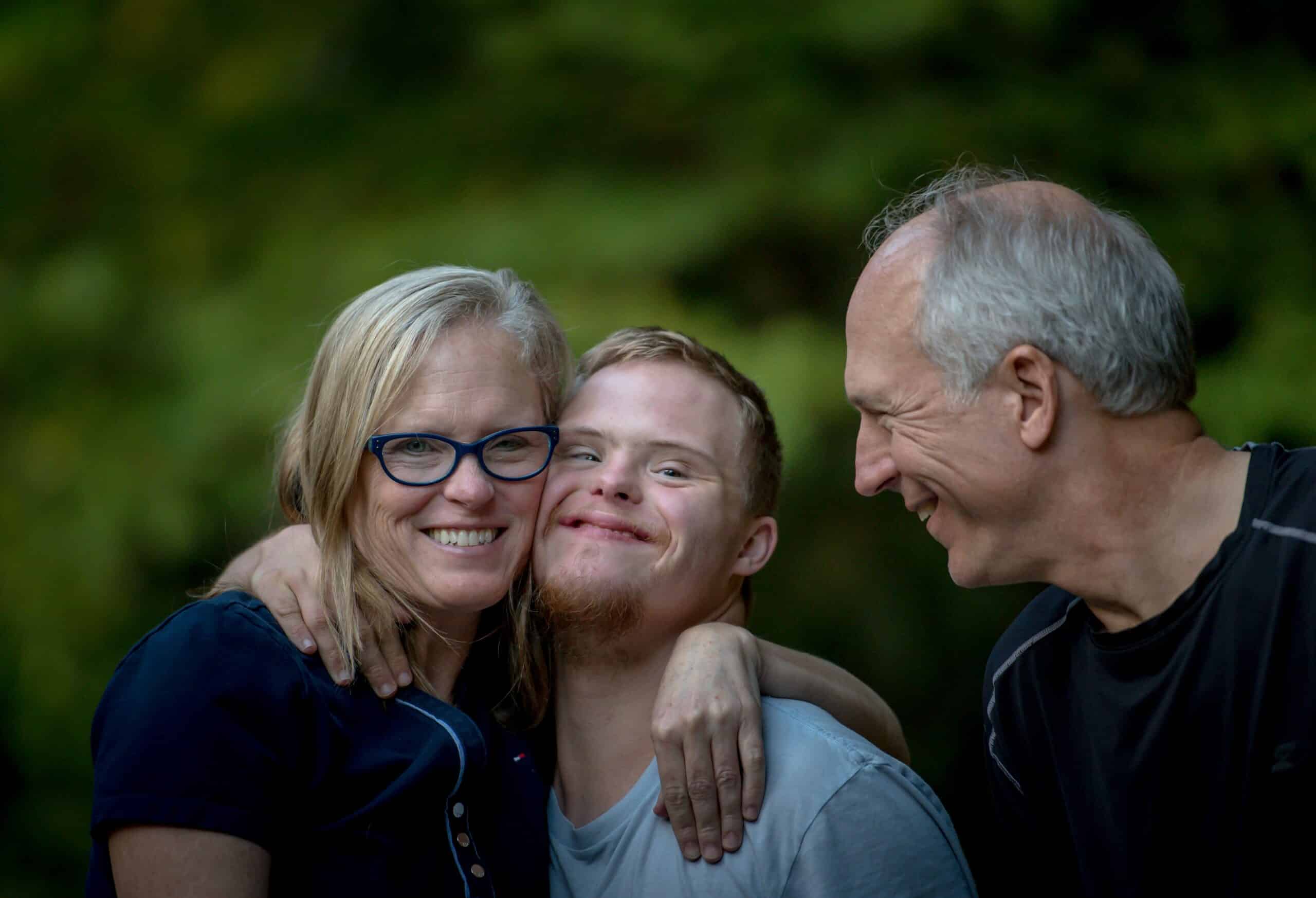Taking care of a loved one with dementia can feel really tough, but knowing how Supported Independent Living (SIL) accommodation can help make things a bit easier and more hopeful. SIL accommodation in WA provides special support designed just for people with dementia. It helps them get the care they need while still keeping as much independence as they can.
By focusing on safety, mental support, and emotional wellbeing, SIL accommodation creates a caring place where individuals can do well. This post will show how Reaching Abilities’ SIL accommodation helps NDIS participants with dementia by building a safe and supportive community.
The Importance of Specialised Care for Dementia Patients
Dementia is a condition that affects how people think, remember, and do everyday tasks. Each person experiences dementia differently, so they need care that fits their specific needs. This can be challenging for both the person with dementia and their caregivers.
The National Disability Insurance Scheme (NDIS) helps by providing support and resources tailored to each individual’s needs. Understanding how dementia affects people and how the NDIS can help makes it easier for caregivers and participants to choose the best care options.
Safety and Supervision
Keeping people with dementia safe is very important. Supported Independent Living (SIL) accommodation offers a secure environment with supervision around the clock. This means there are always trained staff available to help, which reduces the risk of accidents or wandering off, common concerns for those with dementia. In this setting, participants get help with daily tasks like dressing, bathing, and eating. Families can feel more at ease knowing their loved ones are in a safe place where they are well cared for.
Cognitive Stimulation and Emotional Support
Activities that engage the mind are crucial for people with dementia. SIL accommodation provides various activities like memory games and social interactions to keep participants mentally active. These activities not only help maintain brain function but also improve emotional wellbeing.
By offering chances for social interaction and emotional support, SIL creates a community where individuals feel they belong. This supportive environment helps participants make meaningful connections and enjoy a better quality of life.
Personalised Care Plans
Each person with dementia has unique needs, so personalised care plans are essential. SIL accommodation allows for care plans that are tailored to the progression of dementia and any specific health concerns.
These plans are made with input from the participant, their family, and healthcare professionals to ensure that care is responsive to changing needs. By focusing on the individual, SIL provides comprehensive care that addresses physical, emotional, and cognitive needs, promoting overall wellbeing.
How SIL Accommodation in WA Fosters Independence for Dementia Patients
Supported Independent Living (SIL) accommodation helps people with dementia stay as independent as possible while keeping them safe. It provides the support they need to manage daily tasks like bathing, cooking, and taking medicine.
This approach allows individuals to have control over their lives, which boosts their confidence and self-esteem. By balancing support with independence, SIL enhances the quality of life for those with dementia, helping them feel more empowered and capable in their daily routines.
Support for Daily Living
SIL staff do more than just help with tasks; they support participants in living their daily lives. They assist with things like dressing and cooking while respecting each person’s choices and preferences. This support helps participants engage in everyday activities that give them a sense of purpose and satisfaction. By encouraging personal involvement and decision-making, SIL reinforces participants’ dignity and self-worth, creating an environment where they can thrive and feel valued.
Building Routine and Structure
Having a set routine is very important for people with dementia because it reduces confusion and anxiety. SIL accommodation provides a consistent daily schedule that brings stability and predictability.
Knowing what to expect each day helps participants feel less stressed and more at ease. By creating a structured environment, SIL makes sure individuals with dementia feel secure and comfortable, allowing them to focus on enjoying their day without worry or uncertainty.
The Role of Professional Staff in Dementia Care
Professional caregivers are essential for providing effective care to people with dementia. At Reaching Abilities, staff members are trained to handle the complex needs of individuals with dementia. They have the skills and knowledge to manage the cognitive and behavioural challenges that come with the condition.
This expertise ensures that participants receive high-quality care, promoting their safety, comfort, and dignity. By understanding each person’s unique needs, these caregivers make a significant difference in improving the quality of life for those they care for.
Emotional and Social Support
Caregivers in Supported Independent Living (SIL) accommodation do more than just help with physical tasks; they also provide emotional and social support. This creates a caring and respectful environment where participants feel valued and understood.
Building trust and strong relationships helps caregivers better understand each participant’s preferences and needs. This holistic approach addresses both the physical and emotional aspects of dementia, contributing to overall wellbeing and happiness for the participants.
Family Involvement
Family involvement is crucial in dementia care. Caregivers work closely with families to keep them informed and involved in care decisions. This partnership ensures that care is consistent and aligns with the participant’s values and preferences. Families feel reassured knowing they are part of the process, creating a sense of trust and collaboration. This cooperative approach strengthens the support network around the participant, enhancing their quality of life and ensuring they receive the best possible care.
Case Study: Dementia Care Success at Reaching Abilities SIL Accommodation
Meet Margaret, a participant with dementia who has been thriving at Reaching Abilities’ Supported Independent Living (SIL) accommodation. At first, Margaret struggled with memory loss and daily tasks, often feeling confused and anxious. However, with specialised dementia care tailored to her needs, her quality of life has greatly improved. This case study explores Margaret’s journey and shows how personalised support has positively impacted her wellbeing and independence.
Improvements in Wellbeing
Since joining Reaching Abilities, Margaret has seen big improvements in her mental engagement, emotional health, and overall wellbeing. Regular activities and exercises designed to boost memory have helped her cognitive function. The emotional support from caregivers and social interactions with other residents have greatly reduced her anxiety, allowing her to enjoy a more fulfilling life. A structured daily routine provides stability and comfort, empowering Margaret to take an active role in her own care.
Testimonial
Margaret’s daughter, Emily, is very pleased with the care her mother receives at Reaching Abilities. She says, “Seeing mum happy and thriving is everything I could have hoped for. The staff are amazing, and the support they provide is exceptional. Mum feels valued and loved, and I’m grateful for the peace of mind that comes with knowing she’s in good hands.” Emily’s words highlight the dedication and compassion of the staff at Reaching Abilities, showing the powerful impact of their approach to dementia care.
Take the Next Step: Discover How SIL Can Help
Supported Independent Living (SIL) accommodation is really important for people with dementia because it focuses on keeping them safe, helping them stay mentally active, and providing care that fits their needs. If you’re a guardian or support coordinator, choosing SIL accommodation can make sure that your loved one gets the special care they need to live a happy and fulfilling life.
At Reaching Abilities, we are dedicated to helping people become more independent with caring and professional support. We are one of Australia’s top NDIS providers, and we focus on helping you reach your goals with personalised plans. To find out more about how our SIL accommodation can help NDIS participants with dementia, contact Reaching Abilities today. Let us help you provide the best care for your loved one.

Ozer Tanlasi – Founder and Director of Reaching Abilities
Ozer Tanlasi is the Founder and Director of Reaching Abilities, an organisation dedicated to providing compassionate and empowering support to individuals with disabilities. With a background in allied health and a deep commitment to inclusive care, Ozer established Reaching Abilities to create a welcoming space where individuals can thrive, gain independence, and achieve their personal goals. Her approach is centred around understanding each individual’s unique needs and strengths, ensuring they receive tailored services that make a positive impact on their lives. Under Ozer’s leadership, Reaching Abilities has become known for its compassionate, client-focused approach, supporting individuals and families in building meaningful connections and reaching new potentials.






